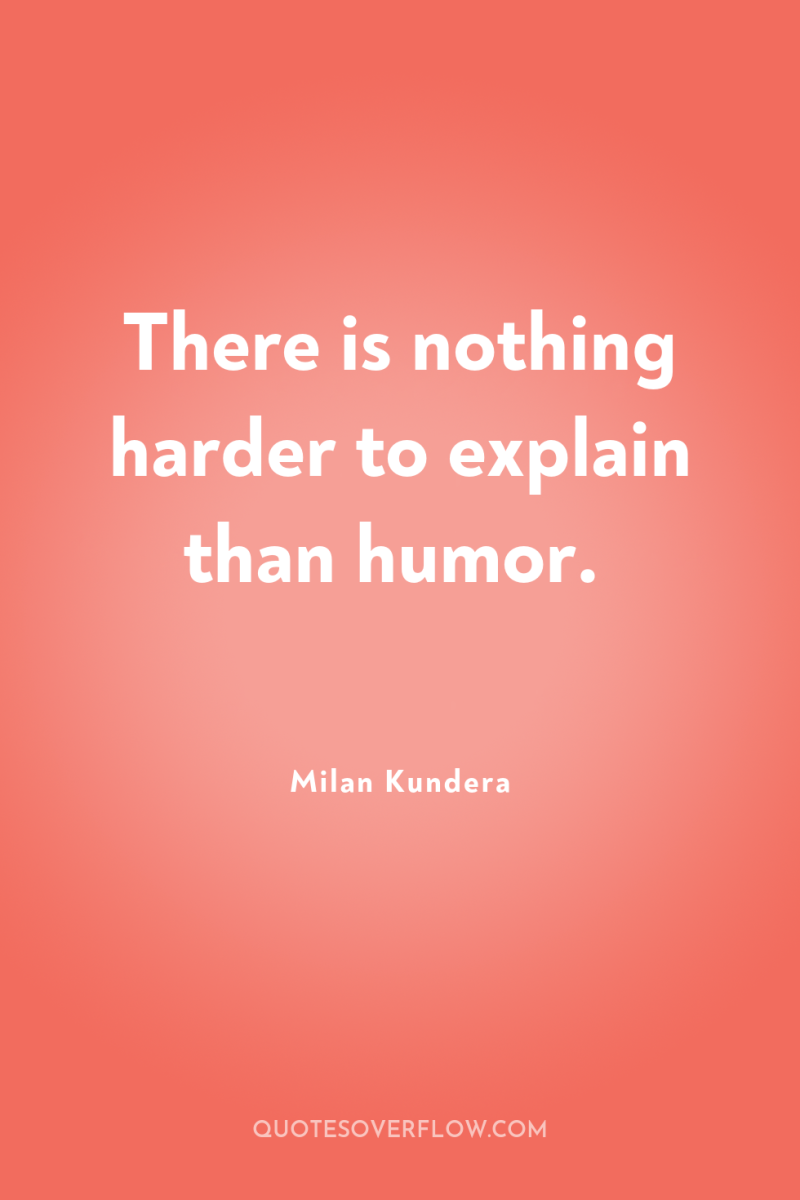1
Brod was a brilliant intellectual with exceptional energy; a generous man willing to do battle for others; his attachment to Kafka was warm and disinterested. The only problem was his artistic orientation: a man of ideas, he knew nothing of the passion for form; his novels (he wrote twenty of them) are sadly conventional; and above all: he understood nothing at all about modern art. Why, despite all this, was Kafka so fond of him? What about you-do you stop being fond of your best friend because he has a compulsion to write bad verse? .Milan Kundera
2
Damn! What did Ansermet, that most faithful friend, know about Stravinsky's poverty of heart? What did he, that most devoted friend, know about Stravinsky's capacity to love? And where did he get his utter certainty that the heart is ethically superior to the brain? Are not vile acts committed as often with the heart's help as without it? Can't fanatics, with their bloody hands, boast of a high degree of "affective activity"? Will we ever be done with this imbecile sentimental Inquisition, the heart's Reign of Terror? .Milan Kundera
3
It is precisely when their interior worlds change shape that Bezukhov and Bolkonsky are confirmed as individuals; that they surprise; that they make themselves different; that their freedom catches fire, and with it the identity of their selves; these are moments of poetry: they experience them with such intensity that the whole world rushes forward to meet them with an intoxicating parade of wondrous details. In Tolstoy, man is the more himself, the more an individual, when he has the strength, the imagination, the intelligence, to transform himself. By contrast, the people I see changing their attitude toward Lenin, Europe, and so on expose their nonindividuality. This change is neither their own creation nor their own invention, not caprice or surprise or thought or madness; it has no poetry; it is nothing but a very prosaic adjustment to the changing spirit of History. That is why they don't even notice it; in the final analysis, they always stay the same: always in the right, always thinking what, in their milieu, a person is supposed to think; they change not in order to draw closer to some essential self but in order to merge with everyone else; changing lets them stay unchanged. Another way of expressing it: they change their mind in accordance with the invisible tribunal that is also changing its mind; their change is thus simply a bet on what the tribunal will proclaim to be the truth tomorrow.Milan Kundera

4
There is nothing harder to explain than humor.Milan Kundera
5
Humor: the divine flash that reveals the world in its moral ambiguity and man in his profound incompetence to judge others; humor: the intoxicating relativity of human things; the strange pleasure that conies of the certainty that there is no certainty. But humor, to recall Octavio Paz, is "the great invention of the modern spirit." It has not been with us forever, and it won't be with us forever either. With a heavy heart, I imagine the day when Panurge no longer makes people laugh.Milan Kundera
6
No one cares about the artist Kafka, who troubles us with his puzzling aesthetic, because we'd rather have Kafka as the fusion of experience and work, the Kafka who had a difficult relationship with his father and didn't know how to deal with women.Milan Kundera
7
Therein lies the power of culture: it redeems horror by transforming it into existential wisdom. If the spirit of the trial succeeds in annihilating this century's culture, nothing will remain of us but a memory of its atrocities sung by a chorus of children.Milan Kundera
8
I say, indeed: "consolation in the nonsentience of nature." For nonsentience is consoling; the world of nonsentience is the world outside human life; it is eternity; "it is the sea gone off with the sun" (Rimbaud).Milan Kundera
9
A small nation resembles a big family and likes to describe itself that way. In the language of the smallest European people, in Icelandic, the term for "family" is fjölskylda; the etymology is eloquent: skylda means "obligation"; fjöl means "multiple." Family is thus "a multiple obligation." Icelanders have a single word for "family ties": fjölskyldubönd: "the cords (bönd) of multiple obligations." Thus in the big family that is a small country, the artist is bound in multiple ways, by multiple cords. When Nietzsche noisily savaged the German character, when Stendhal announced that he preferred Italy to his homeland, no German or Frenchman took offense; if a Greek or a Czech dared to say the same thing, his family would curse him as a detestable traitor.Milan Kundera
10
Not everything written on Kafka is Kafkology. How then to define Kafkology? By a tautology: Kafkology is discourse for Kafkologizing Kafka. For replacing Kafka with the Kafkologized Kafka.Milan Kundera
11
After Chopin's death, Polish patriots cut up his body to take out his heart. They nationalized this poor muscle and buried it in Poland.A dead person is treated either as trash or as a symbol. Either way, it's the same disrespect to his vanished individuality.Milan Kundera
12
For a trial is initiated not to render justice but to annihilate the defendant. Even when the trial is of dead people, the point is to kill them off a second time: by burning their books; by removing their names from the schoolbooks; by demolishing their monuments; by rechristening the streets that bore their names.Milan Kundera
13
Biographers know nothing about the intimate sex lives of their own wives, but they think they know all about Stendhal’s or Faulkner’s.Milan Kundera